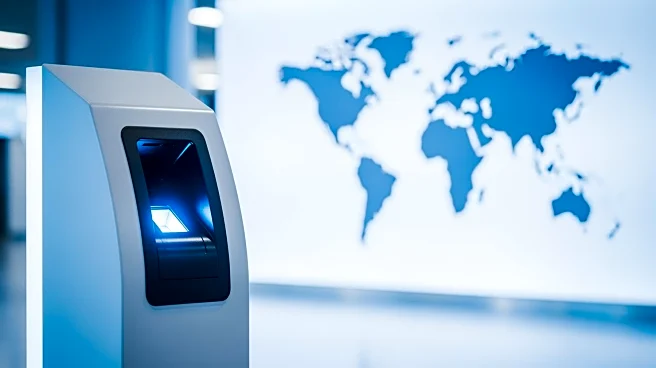What's Happening?
India's DigiYatra system, which utilizes facial recognition technology for airport entry, has enrolled its first international user. This development marks a significant step towards expanding the system's use beyond domestic flights to potentially include
international travel. Currently, DigiYatra is available only to Indian citizens for domestic flights, allowing them to bypass traditional ID checks and boarding pass requirements. The system aims to streamline airport processes and reduce wait times. The DigiYatra Foundation has signed a pilot trial agreement with the International Civil Aviation Organization (ICAO) to enable enrollment through electronic passports, paving the way for broader international adoption.
Why It's Important?
The expansion of DigiYatra to international users represents a major advancement in travel technology, potentially transforming airport security and efficiency. By reducing reliance on physical IDs and boarding passes, the system could significantly decrease congestion and improve passenger flow at airports. This move also positions India as a leader in adopting facial recognition technology for travel, which could influence global standards and practices. However, it raises concerns about privacy and data security, as facial recognition technology continues to be a contentious issue worldwide.
What's Next?
As DigiYatra moves towards international implementation, further trials and evaluations will be necessary to ensure the system's effectiveness and security. The collaboration with ICAO suggests that international standards and protocols will be developed to facilitate global adoption. Stakeholders, including airlines and airport authorities, will need to assess the system's impact on operations and passenger experience. Additionally, ongoing discussions about privacy and ethical considerations will likely shape the future of facial recognition technology in travel.
















